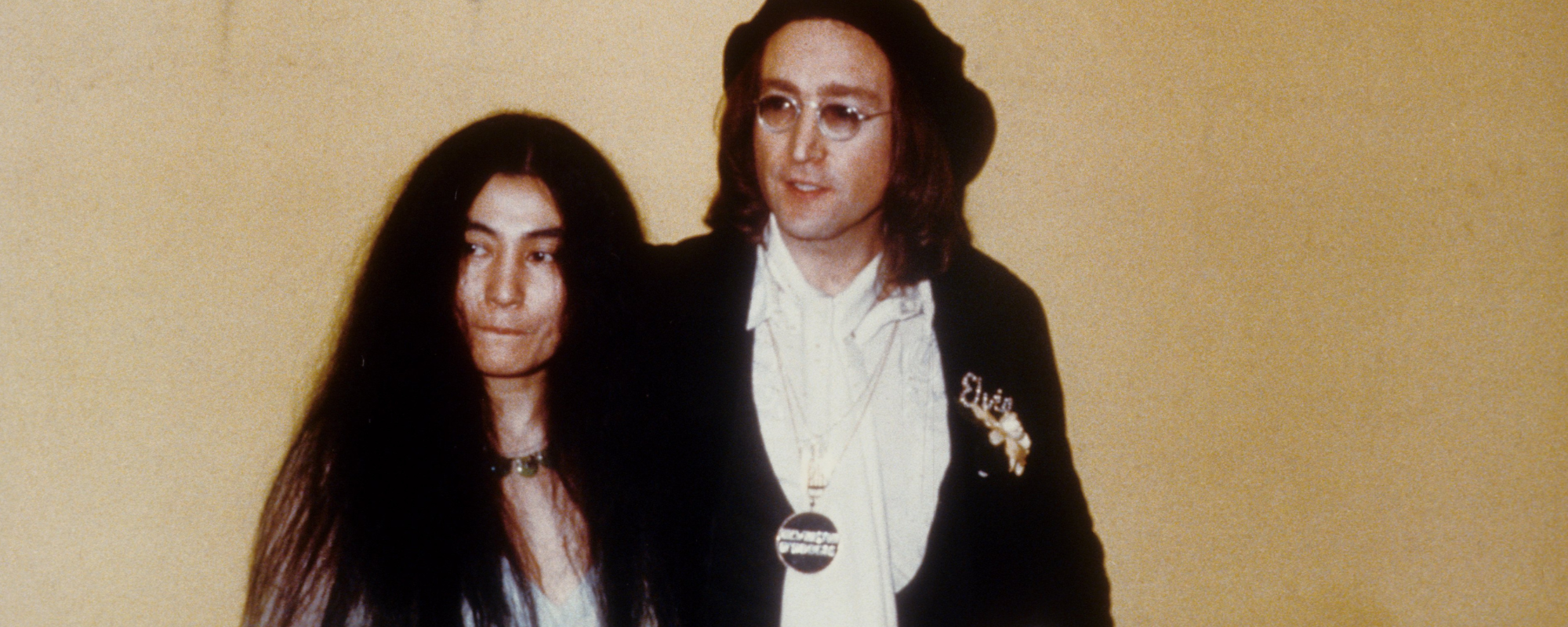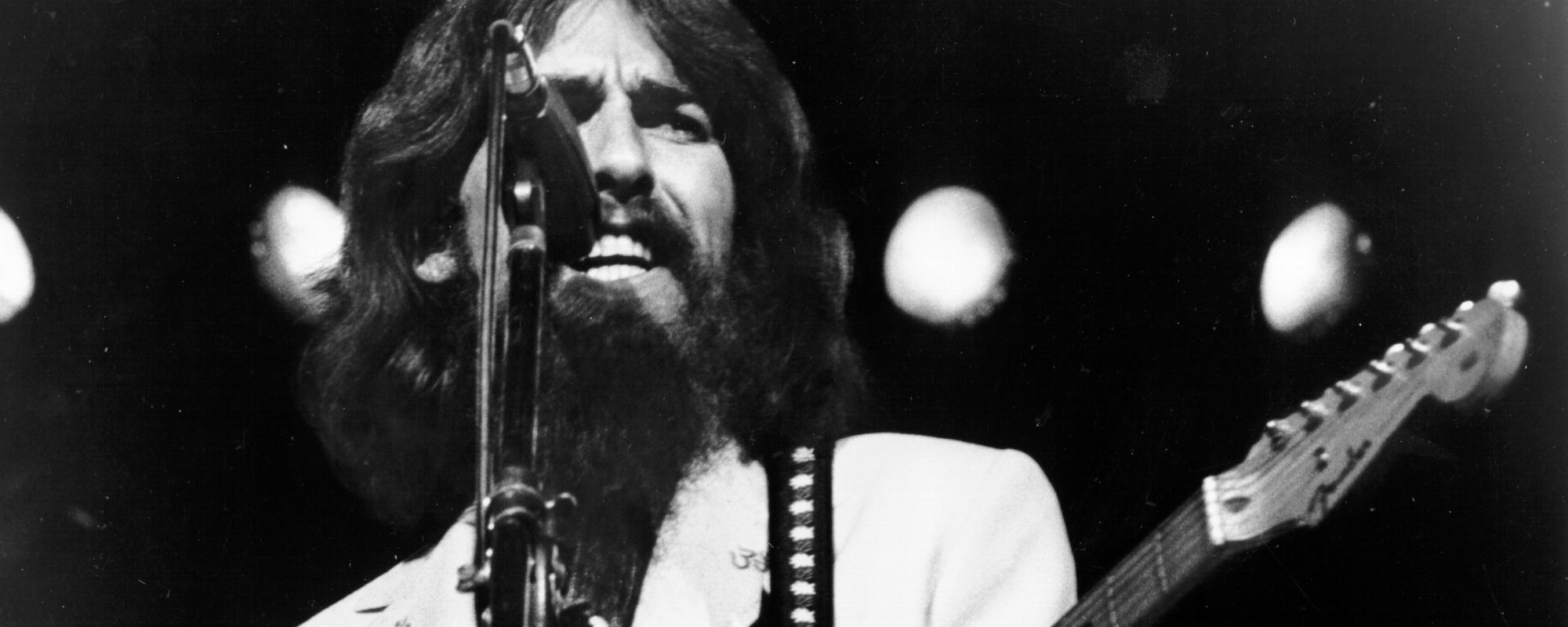Going against the grain of the slick, glossy productions found on most popular rock albums in the 1980s, The Waterboys had their greatest commercial success in the U.S. with the folky Fisherman’s Blues, released in 1988. There is no mistaking the Celtic influence on the arrangement of the raucous rocker “World Party,” which was one of the most popular tracks from Fisherman’s Blues. The song’s lyrics have a connection to Ireland and Scotland, too, though it’s a peripheral one.
Videos by American Songwriter
In an email exchange with American Songwriter, The Waterboys’ leader Mike Scott says “World Party” was “a celebration of the spirit of Live Aid and the possibilities it pointed to, of fusing global consciousness.” The two Live Aid concerts, which were held on July 13, 1985, were organized by Sir Bob Geldof, the Irish singer of the Boomtown Rats, and Midge Ure, the Scottish vocalist for Ultravox.
Just from listening to Scott’s lyrics for “World Party,” it may not be entirely clear that he felt a sense of awe when witnessing the Wembley Live Aid concert in person and when subsequently watching the Philadelphia show on TV at home. In a message to American Songwriter, Scott explains exactly what he intended to convey with the song.
Not a Product of Conventional Thinking
Understanding what Scott intended in “World Party’s” opening lines is critical to grasping the meaning of the entire song. One could interpret from these lines that Scott may have had some skepticism about Geldof and Ure’s ability to mitigate famine in Ethiopia with a pair of benefit concerts.
Well it’s got nothing to do with anything that is real
You just believe in it and it’s true
You can soothe like an angel or sigh like a saint
You can dream it and see it through
However, Scott explains why he chose to sing that Live Aid had nothing to do with anything that is real. He says, “The line … should be understood with the word ‘real’ in inverted commas. What I’m saying is that spiritual power of the kind Live Aid pointed to is not achieved by conventional thinking or believing only in the physical reality you can touch or taste, but that there is an unseen dimension to our lives that is vastly more impactful than conventional reality acknowledges, and that believing in that dimension is crucial to manifesting it.”
Scott adds that he sees Geldof and Ure as “heroes” for organizing Live Aid. So when he sings You can soothe like an angel or sigh like a saint, he is holding Geldof and Ure up as examples of what people can achieve when they tap into their own power to make their dreams real.
Inspiration for Climbing Our Own Peaks
There is nothing unclear about Scott’s sense of wonder as he relates it in the remainder of the first verse. He also sees that Live Aid can serve as an inspiration to others to use their creative powers in ways that are unique to them.
You will live to see a sea of lights
Sparklin’ on the face of a pearl
Climb your own peak
Find a new streak
Get yourself along to the world party
In singing Climb your own peak, Scott is conveying “that as well as trying to come together as humanity, each individual has to climb their own peak, master their own self.”
In the second verse, Scott addresses those who are only comfortable living in the bounds of their physical reality. In singing Now you’ve been building for yourself a cool place in the sand / You’re thinking that it’s mighty fine, he says he is referring to “a kind of person who denies the spiritual dimension,” though Scott adds the lines don’t “refer to anyone in particular.” When, in the third verse, Scott sings of A summer like a pretty girl / Who shimmers and shines, he is looking back at the summer of 1985 as an example of “a golden age” that can inspire us to rise above our cynicism and self-imposed limitations.
“World Party’s” 1985 Origins
While Live Aid was not as topical by the time The Waterboys released Fisherman’s Blues, a version of “World Party” had actually been written in the summer of 1985, just shortly after Live Aid and after the band’s previous album, This Is the Sea, had been completed. A demo for the song is included in The Waterboys’ 2024 box set 1985, which includes recorded and live performances the band produced along the way to making the final version of This Is the Sea, as well as a remastered version of the album. While “World Party” didn’t make it on to that album, you can hear the demo on the fifth disc (of six) of 1985.
The Relationship to Karl Wallinger’s World Party
The late multi-instrumentalist Karl Wallinger, who passed away Sunday (March 10), co-wrote “World Party” with Scott and Waterboys bassist Trevor Hutchinson while he was still a member of the band. Wallinger left The Waterboys in 1985, and he took the song’s name as the name for his new band. With his World Party, Wallinger would score hits in the U.S. with “Ship of Fools,” “Put the Message in the Box,” “Way Down Now,” and “Is It Like Today?” World Party also recorded a track called “World Party,” but it is a different song than The Waterboys’ version.
The Impact of “World Party”
The Waterboys did not release “World Party” as a single, but it was one of two tracks from Fisherman’s Blues to register on a Billboard chart. It went to No. 19 on the Alternative Airplay chart and No. 48 on the Mainstream Rock chart. (The title track of Fisherman’s Blues reached No. 3 on the Alternative Airplay chart.) Fisherman’s Blues was the first Waterboys album to rank inside the Billboard 200, peaking at No. 76.
If Scott were to write “World Party” today, it would likely feature some lyrical changes. He says he now believes that “an experience of that [spiritual] dimension can happen whether you believe in it or not, and frequently does.” As it stands, the song reminds us of a summer when the idealism of two men created a beautiful event that is still remembered fondly today. As Scott rightly points out, Live Aid can still provide the inspiration for each of us to “climb our own peak.”
When you purchase through links on our site, we may earn an affiliate commission.
Photo by Tim P. Whitby/Getty Images













Leave a Reply
You must be logged in to post a comment.